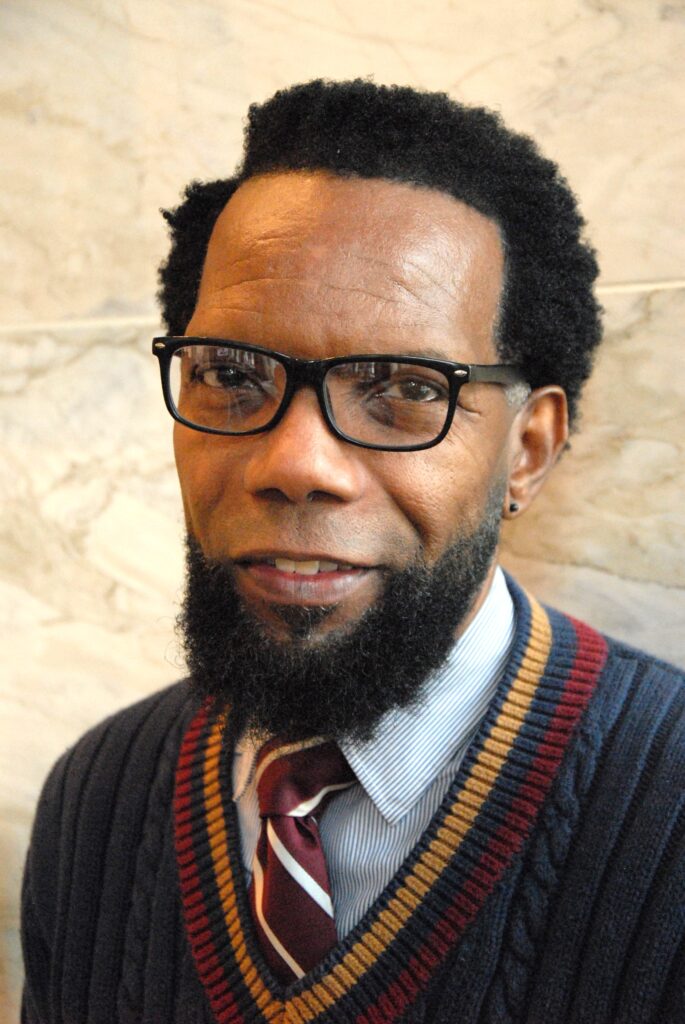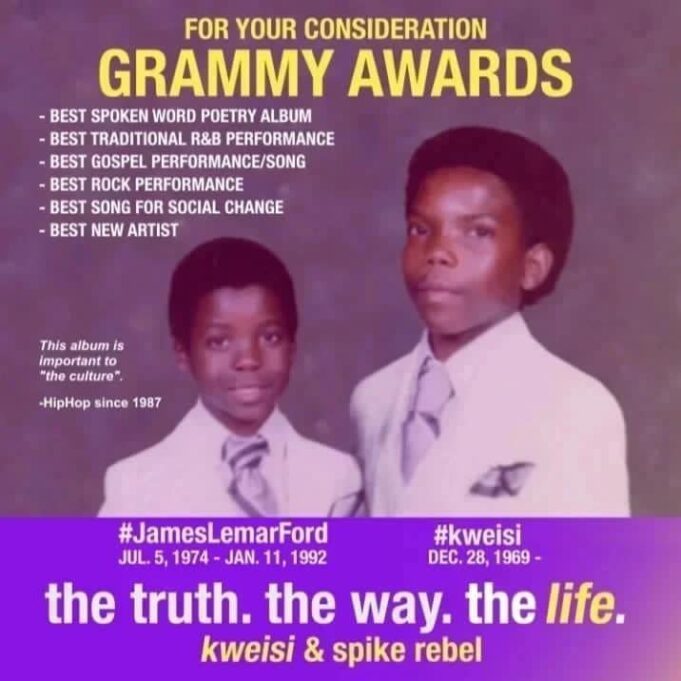CHICAGO—Thirty years ago, Kweisi Gharreau’s world was shattered by the murder of his brother, Lamar. Overwhelmed by grief, Gharreau turned to poetry to navigate his emotions. It propelled him on a path of self-discovery and activism as he found solace in expressing the circumstances that led to his brother’s death.
“It was never my plan to become a poet. My story, my pain, it all shaped who I am today,” Gharreau reflects.
One pivotal moment came when he stood before his brother’s grave, seeking guidance and grappling with forgiveness. As he later met his brother’s killers, Gharreau found peace. This experience led to the publication of his book, “Innocent Rage.”
“Writing poetry allowed me to confront my inner demons on paper. It was a form of catharsis that saved me,” Gharreau shares.
“Writing the poem, one shot away, saved my life, it gave me aplomb about who I can become as a writer, man, and poet. Writing inspired me not to manifest dark thoughts of suicide,” Gharreau said.

The World Health Organization reports that nearly 800,000 people worldwide die by suicide each year. September is National Suicide Prevention Awareness Month. The Centers for Disease Control and Prevention reported that nearly 50,000 Americans died by suicide in 2022. Among young Black males and older Black men, suicide ranks as the second and third leading cause of death. Finding safe spaces for people to communicate their emotions is crucial in reducing this number.
“I think the pandemic helped everyone realize the importance of mental health. A part of that is having safe spaces,” said cafe manager Kristen Prodehl of Coffee, Hip-Hop & Mental Health, an organization making therapy more accessible for Chicago’s Black communities. The organization offers free sessions for men and women.
Gharreau’s poetic voice has positively impacted others. From performing at local poetry readings to establishing a program curbing violence through poetry, he became a catalyst for change. His efforts extended to collaborating with the Illinois Council’s “Hand Without Guns” initiative.
Cedric Collins, a business owner and actor, attributes his journey to Gharreau’s influence. He refers to Gharreau as a “big brother.” His mentorship opened Collins’ eyes to a world beyond his rural beginnings.
“He influenced me to tap into things I didn’t know were in me. He made me see the God in me,” said Collins, emphasizing Gharreau’s role in instilling self-respect and self-representation.
Even with his noble endeavors, Gharreau’s journey faced challenges. He turned to substance abuse at times to numb the pain. His frustrations led him to explore film production, seeking to amplify his message.
Reflecting on the power of his art, Gharreau emphasizes the importance of acknowledging and processing emotions. “We all have access to a pen and pad. How we channel that determines our well-being,” he said.
It’s a lesson he shared with the students at Percy L. Julian High School in 1997. That’s where he met Malachi Holmes. “His story resonated with me. It helped me get to spoken word and I found a way to express myself,” Holmes said. “Through him, I was able to experience and do a lot of things. He’s been my mentor for a while. He helped me actually get into college at the University of Iowa. He’s helped me to see the better part of life.”
For Gharreau, forgiveness was a step toward healing. “Forgiveness is not just about the other person; it’s about freeing oneself from resentment and pain,” he explains.
Though the scars remain, Gharreau’s story showcases the human spirit’s resilience and the power of art in navigating grief. As he continues to uplift his community, Kweisi stands as a testament to the triumph of the human spirit over adversity.
Additionally, Gharreau’s spoken word poetry album, “the truth. the way. the life.,” with music producer Spike Rebel featuring Team John Hill, was up for consideration for the 66th Grammy Awards in five categories at the time of this writing.
If you or anyone you know needs help, there are resources available including SAVE (Suicide Awareness Voices of Education) at 800-273-8255 and other resources. You are not alone. You are worthy to live and to be loved.













